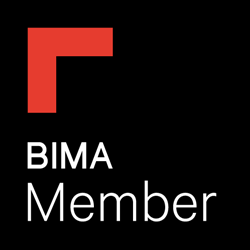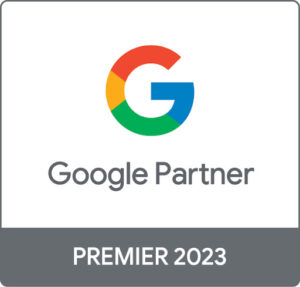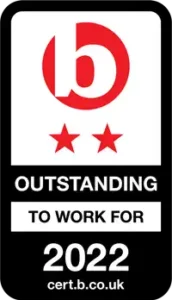What is the Google Exec Circle?
In June, we attended the Google Executive Circle up at Google’s King’s Cross office, an exclusive study block composed of 50 or so team leaders from Google’s top Premier Partner agencies.
The all-day session was on ‘Driving Profitable Growth & Becoming Strategic Client Partners’ and showed great insight into how the landscape of PPC is changing away from simple platform managers to making ourselves essential strategic and growth consultants to our valued clients.
How was the day run?
In a change from the usual Google conferences we attend, this session was focussed mainly on the sales process of agencies who work with Google and running through strategies on how we can embed a commercial culture amongst our team in order to drive new and existing business. We also looked at various frameworks and strategies in order to better understand and support potential client prospects and our team.
The session was run by SBR Consulting who ran an excellent interactive session which involved group work and activities and gave us several key takeaways that we wanted to work on developing here at Seed.
What did we learn?
Sales is just a process like any other
People tend to be afraid of ‘sales’ as a word, but it is just another workflow like any other that anyone, regardless of seniority or experience, can tackle in our day-to-day.
It’s something that we can consider in our everyday communications with clients, an example could be starting off a call with a discussion about how their business is doing in general to gain valuable insights that can be fed back to the team.
Improving the ‘self-talk’ of your team is vital to driving results
We were run through the self-confidence cycle, of which the first step is all around our self-talk and how we tend to talk to and feel about ourselves.
This is the foundation of everything that we do, and negative self-talk can impact our self-belief, then our actions and behaviours and finally the results we deliver.
Studies have shown that those who can foster positive self-talk in themselves generally go on to see greater success in their careers, whether it be through seniority or the results they deliver.
So fostering a culture of positive self-talk amongst your team through avoiding over-rationalisation can see huge benefits in all areas. Call out team members who use negative language and question the context behind someone’s negative attitude to help find solutions.
Being busy is not a badge of honour, it’s a polite way of saying no
Those who have worked in agencies will understand how busy everyone can seem to be, but is this just a matter of over-promising and under-delivering?
Most agencies agreed there was a culture of needing to be busy at all times but also saw the impact this was having on their team and themselves – is it just an example of negative self-talk so that we can say no to potential opportunities?
Burnout is a real thing, and it’s something no one wants for a colleague or themselves so better time management skills and an open attitude to opportunities can help cut out this common behaviour trait.
The importance of ‘Conscious Competency’
There are 4 stages of learning these include:
- Unconscious Incompetency
- Conscious Incompetency
- Conscious Competency
- Unconscious Competency
When introduced to something new, you are in unconscious incompetency because you don’t understand it, nor do you have any skill in it.
Once you begin to understand something and you are therefore more aware of your lack of skills and then you move into unconscious incompetency.
You can then work on developing those skills and start to become competent – this is when you are in conscious competency.
However, there is a tendency once we think we become good at something to fall back into complacency and bad habits – this is unconscious competency, and it has to be avoided at all costs.
To remain in ‘conscious competency’ we must retain a constantly curious attitude, being humble enough to know that there’s always something we can develop in what we do. Perhaps you have peers audit your work and point out areas of improvement. Work on the worst-case scenario for your clients so that you’re prepared for whatever outcome may come in the future.
Look for Will, not for Skill in the team
We were run through the Skill Will Matrix – a simple X & Y graph used to understand the mix of team members you have in your department or agency.
On the Y we have the Skill they have in your specific area of expertise and on the X we have their Will – or motivation to learn/improve/develop themselves as a person.
Something all of the agencies unanimously agreed upon was that they value team members and prospective talent with high Will over those with high Skill – it is far easier to develop someone’s skills in a certain area than their natural inclination to have a high level of motivation in their everyday life.
As a progressive organisation that relies on everyone’s self-management skills and with little defined hierarchy, it is of huge importance for our team to be composed of self-starters, team members who are proactive and organised with a hunger to develop themselves.
To conclude
We found the Exec Circle event hugely insightful, and the best part was the time we could spend talking to our peers at other agencies to gain a deeper insight into the industry as a whole and tackle problems that we both shared.
We’re looking forward to the next event in September and will be sure to keep you updated on all the big trends and news from Google’s side as we run through this exclusive programme.








